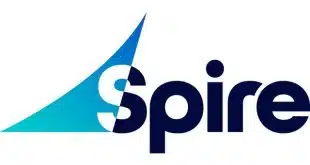Visa Inc. and Mastercard Inc. may be making significant progress in their bid to simplify and speed their aged and cumbersome chargeback processes through automation, rules changes, and some key acquisitions, experts contend.
The biggest gains in chargeback efficiency are expected to come when Visa and Mastercard launch real-time communications between card issuers and merchants. For Mastercard, that capability is expected to come through Ethoca Inc., a global network with more than 6,500 merchants and more than 4,000 card issuers. Mastercard acquired Ethoca in March.
Visa is pinning its hopes for real-time communications on Visa Merchant Purchase Inquiry, a plug-in for its Visa Resolve Online platform. To strengthen its hand for this play, Visa last month agreed to acquire Verifi Inc., a provider of chargeback-prevention tools that connect issuers and merchants in real time.

The advantage of real-time communication in chargeback resolution, observers say, is that merchants can provide to issuers more information about the transaction and the product purchased than what issuers receive in the request for authorization. The real-time channel can help issuers determine sooner if a chargeback is fraudulent or the result of buyer’s remorse.
But the biggest improvements in the chargeback process so far have come from other tactics, such as replacing batch-file transmissions with data-driven rules engines that weed out bad data, decrease the operational burden on issuers and merchants, and make it easier to spot chargeback abuse, according to a new report from Aite Group, a Boston-based consultancy.
Since Visa rolled out Visa Claims Resolution (VCR) last year, it has improved blocking of invalid chargebacks by 10%. VCR is the network’s initiative to simplify the chargeback process. In addition, 80% of dispute volume is now automated, average chargeback-resolution times have decreased to 23 days from 54 days, and the number of touch points per dispute is down 29%, according to Aite’s report, entitled Disputes and Chargebacks: Comparing and Contrasting the Networks’ Approaches.
Mastercard began upgrading its chargeback platform in 2018 with the launch of MasterCom Claims Manager. MasterCom includes analytics-based chargeback blocking, the ability to spot a chargeback initiated after a merchant credit has been issued. It also replaces batch processing with a Web user interface or API integration, and provides dashboard reporting with summaries, trend analysis, and case history.
“Legacy chargeback processes were costly and didn’t provide the best customer experience because of the time taken to resolve the dispute,” says Julie Conroy, a research director for Boston-based Aite and author of the report. “It was an inefficient process vulnerable to stakeholders that want to game the system.”
In addition to implementing new technology, Visa and MasterCard have restructured their chargeback reason codes and response times. Visa reduced its chargeback reason codes to 22 from 24 and lowered issuer-response times from 45 days to 30 days. Mastercard has reduced issuer-dispute times from 120 days to 90 days and requires issuers to collect increased levels of documentation from cardholders for some reason codes while eliminating others.
Under Mastercard’s new rules, issuers must also check for refunds/reversals prior to chargebacks and accept a second presentment if submitted as a credit processed. Merchants have 45 days to contest a dispute if they submit a refund before the chargeback.
Still, while the card networks may be banking on their recent and announced acquisitions to open communications between issuers and merchants, not all observers are sold on the idea that such real-time channels are ready for commercial use.
“Improving accountability in chargeback disputes is important, but the technology being talked about is untested,” says Monica Eaton-Cardone, cofounder and chief operating officer of Chargebacks911, a Tampa, Fla.-based consultancy. “Until Visa and Mastercard can achieve real-time collaboration between issuers and merchants, they should focus on closing the loopholes to chargebacks and disputes.”





